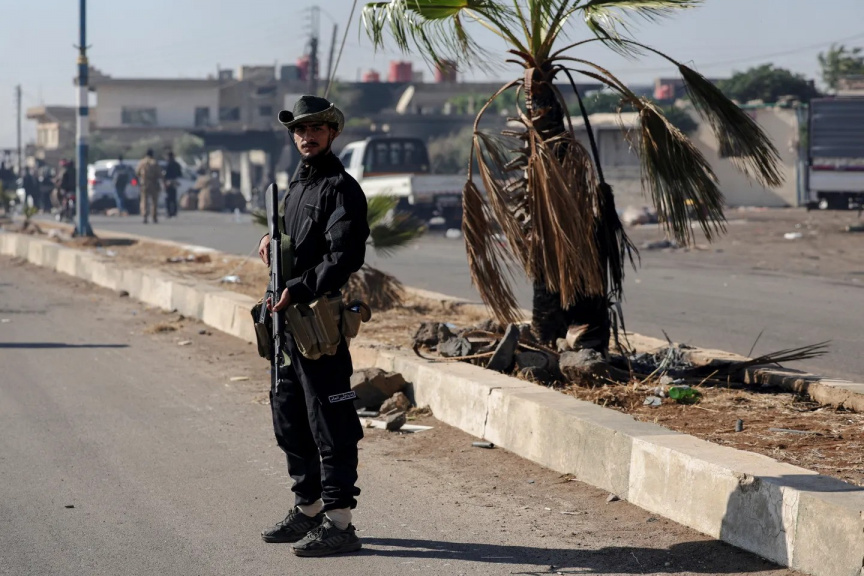
An officer stands guard at an Internal Security Forces checkpoint working to prevent tribal fighters from advancing towards Sweida. (Photo/Reuters)
The Syrian Interior Ministry has announced that the city of Sweida has been cleared of tribal fighters, and clashes have been halted.
"Following intensive efforts by the Ministry of Interior to implement the ceasefire agreement — after the deployment of its forces in the northern and western areas of Sweida province — the city of Sweida has been cleared of all tribal fighters, and clashes within the city’s neighbourhoods have been brought to a halt," said ministry spokesperson Nour al-Din al-Baba on Saturday, according to the state-run news agency, SANA.
The Syrian presidency announced a comprehensive and immediate ceasefire in Sweida following days of unrest in the southern province.
Clashes broke out on July 13 between Bedouin Arab tribes and armed Druze groups in Sweida.
Violence escalated, and Israeli air strikes followed, including on Syrian military positions and infrastructure in Damascus. Israel cited the need to protect Druze communities as a pretext for its illegal attacks.
Most Druze leaders in Syria, however, have publicly rejected any foreign interference and reaffirmed their commitment to a unified Syrian state.
US 'heavily involved'
Hours later, US Secretary of State Marco Rubio urged the Syrian government to use security forces in the south to "immediately" stop the violence between Druze and Bedouin groups and prevent further atrocities.
"If authorities in Damascus want to preserve any chance of achieving a unified, inclusive and peaceful Syria free of Daesh and of Iranian control they must help end this calamity by using their security forces to prevent ISIS and any other violent jihadists from entering the area and carrying out massacres," Rubio wrote on X.
He said Washington has remained "heavily involved" in the last three days in coordinating with Israel, Jordan and Syrian authorities in Damascus the "horrifying and dangerous developments" in the southern province of Sweida.
Following the fall of Bashar al Assad's regime last December, Israel intensified its aggression against Syria and declared a buffer zone between the two countries defunct, alongside the 1974 Disengagement Agreement.
Assad, who ruled Syria's for nearly 25 years, fled to Russia in December, ending the Baath Party regime, which had been in power since 1963.
A new transitional administration led by Sharaa was formed in Syria in January.
___
Source: TRT